Duke Vin And The Birth Of Ska
Duke Vin & The Birth Of Ska is an ace new documentary that explains how one man’s fierce passion for Jamaican music helped bring ska to the masses. We talked to the director about Duke, ska and the West London scene...
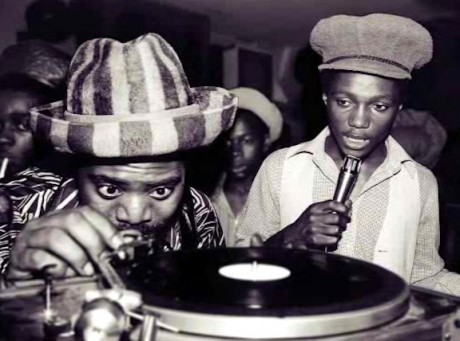
In his immaculate and definitive study of Jamaican music, Bass Culture, Lloyd Bradley concedes that the origins of ska music are damn near impossible to pin down with any kind of accuracy. “Talk to any number of the major players from the Jamaican music scene of four decades ago,” he writes, “and you’ll come away with the same number of entirely independent accounts of how the word ‘ska’ came about.” Bradley admits that it’s equally impossible to determine the first ever ska record: “The list of songs claiming to be the first ska song would make the Gettysburg Address read like a note to the milkman. Anyway, such exactness would be nigh impossible to prove, as such was the nature of the 1950s Kingston music scene that as soon as three people had heard something at least two of them would have copied it. Within as many days.”
In other words, the development of ska music involved a great many different pioneering figures. Playing his own part in it all was Vincent George Forbes, better known as Duke Vin. When Vin passed away in November 2012 at the age of 84, the obituarists paid their warm respects to a much-loved man who not only introduced the first sound systems to the UK, but who was also instrumental in popularising ska music in his adopted homeland.
Duke Vin’s legacy is the subject of an exhilarating documentary directed by Gus Berger. Combining vintage footage and contemporary interviews with the likes of Jerry Dammers, Don Letts and Vin himself, Duke Vin & The Birth Of Ska explains how one man’s fierce passion for Jamaican music helped bring ska to the masses.
The third of four children, Vin was raised in the heart of downtown Kingston and made his DJing debut in 1953. A year later, along with fellow sound man Count Suckle, he emigrated to England, both making their way as stowaways on a Norwegian liner.
Along with 160,000 other newly arrived Jamaicans, they had to cope with cold weather, limited job opportunities, low wages, endemic racism and, not least, the distinct lack of partying options. As Vin tells Berger in the film, “I look around and see what’s up. I say, boy, the country is dead. Nowhere a sound, nowhere to go. I couldn’t find nowhere to go for a dance.”
Enterprisingly, Vin started his own sound system and began playing at all-night house parties around Ladbroke Grove and Notting Hill. There was no small demand for his services. The bigger the crowds, the greater the need for larger and larger speakers and amps. Ceilings were known to collapse under the weight of Vin’s bass-heavy sound systems. Run-ins with officialdom were frequent.
More…
Don Letts Interviewed: “I’ve done it all and I’m still doing it all”
As Vin graduated to larger venues and then to impossibly hip West End clubs like The Roaring Twenties, his repertoire mostly consisted of American R&B 45s. Then, at the end of the 50s, ska was born and everything changed. As the slow trickle of ska releases turned into a headlong rush, Vin ensured he kept ahead of his sound system rivals by seeking out the newest and most obscure Jamaican releases. His club nights soon became the hottest ticket in town, attracting members of The Beatles and The Rolling Stones. In 1964 Millie Small’s My Boy Lollipop became the first ska tune to become a global hit, selling a cool six million. Ska was moving uptown, eventually to mutate into rocksteady and then reggae.
Vin’s influence didn’t end there. As one of the founders of the Notting Hill Carnival, he was the first to introduce a sound system to the event and continued to play there for the next 37 years, whilst remaining active on the sound system circuit until shortly before his death.
Duke Vin & The Birth Of Ska is a fitting testament to his pioneering spirit and a reminder as to why ska remains the coolest musical genre of them all.
Q&A with director Gus Berger.
JW: When you did you first discover Jamaican music?
GB: I guess my first foray into Jamaican music was through artists such as Bob Marley, Peter Tosh and Jimmy Cliff. I was already a big fan of early US rhythm & blues and this music lead me back into Jamaican music where I discovered ska, rocksteady and the many different styles of music coming out of that small island.
JW: Debate still rages as to what was the first ever ska record. What’s your take on it?
GB: There was so much musical creativity happening in Jamaica in the early sixties that it was inevitable that a new style would emerge. I’m not really sure what that first ska record was, but you could be sure that Prince Buster, Duke Reid or Coxsone Dodd were not far behind it.
JW: How did you come to hear about Duke Vin and what inspired you to base your film around him?
GB: I’m fascinated by the evolution of Jamaican music, as I am by black American music. So I got talking to many Jamaican record store owners, finding about what was happening, music-wise, in the UK in the late fifties and early sixties. Duke Vin’s name kept popping up. Since he was consistently being touted as the first Jamaican DJ in the UK and the builder of the first sound system, I initially thought he must have passed away long ago. Not only was he very much alive but he was playing records later that week at Gaz’s Rockin’ Blues on Wardour Street. I met him on that night and we became firm friends.
JW: The film acknowledges the racism that Jamaican immigrants like Duke Vin encountered when they first arrived in England. How difficult was it for Vin himself to settle in this country?
GB: I think that Vinny was one of the lucky new arrivals who managed to find work almost straight away but I’m sure it would have been very hard work. I believe he was working on the railways. Vinny would have faced many obstacles such as racism and ignorance towards the music he was promoting, but he was a very positive man and he rarely spoke of the difficulties he faced. He simply concentrated on the joy he brought people through the music he played.
More…
JW: Duke Vin seemed to be the kind of man who was universally loved. What were your impressions of him?
GB: First and foremost I found him to be an absolute gentleman. He was also very generous and warm-hearted. I spent quite a bit of time sitting in the front room of his West London home, talking to him about the film project I had in mind and chatting about his life in general. When I would leave and thank him for his time he would always say “you are very welcome, come back any time, you’re very welcome.” He would also talk of his children and grandchildren of whom he was very proud. Saying that, my very first impression of him was what incredible tunes this old man was playing. I couldn’t believe it.
JW: Duke Vin was said to own the biggest collection of 7” singles in London. How vast was his collection exactly?
GB: I believe he had to move out of one of his West London homes because the records literally took over.
JW: Ska seems to have enjoyed more revivals than any other musical genre. What do you think is the secret of its enduring appeal?
GB: I think musically, there’s a lot going on in a ska record, with many different instruments at play. Underneath all of that is a driving beat that makes it great to dance to. This all helps to make it great music to play as a band. Inevitably this will lead to many different styles being formed as the musicians experiment with the songs. It’s also a very uplifting sound. It can still be melancholic but, ultimately, it’s a very positive style of music.
JW: Could you name five ska 45s that would serve as a good introduction for someone coming new to the music?
GB: When You Call My Name by Stranger and Patsy. Eastern Standard Time by The Skatalites. Ska Beat by Alton Ellis. Phoenix City by Roland Alphonso. Latin Goes Ska by The Skatalites & Don Drummond.
Limited editions of the Duke Vin & The Birth Of Ska DVD are available via gustofilms.com
If you like it, Pass it on
 COMMENTS
COMMENTS
I met Duke Vin 30 years ago when I was working asd a plumber for Westminster council,i used to talk for hours with him and we became good friends, he encouraged me to start DJing, which I now do. I have only just heard of his passing and am really shocked. 'do you have a contact no or e mail so i can pass on my wishes to his family


 RELATED
RELATED


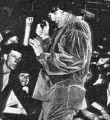
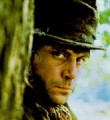
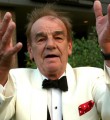
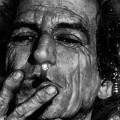



 SABOTAGE
SABOTAGE





